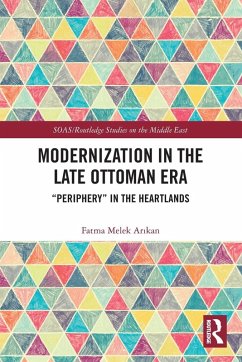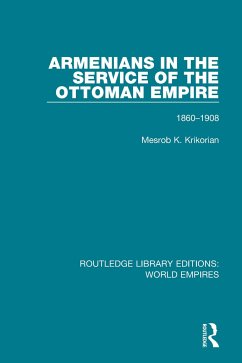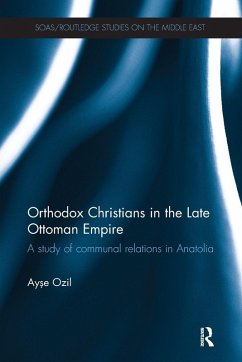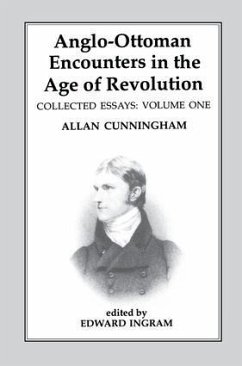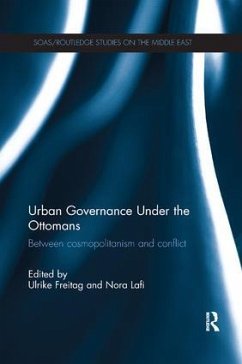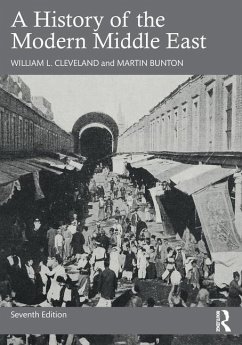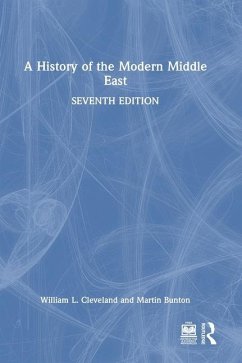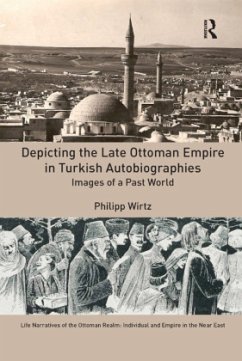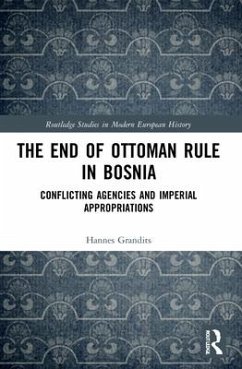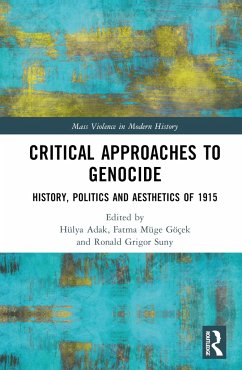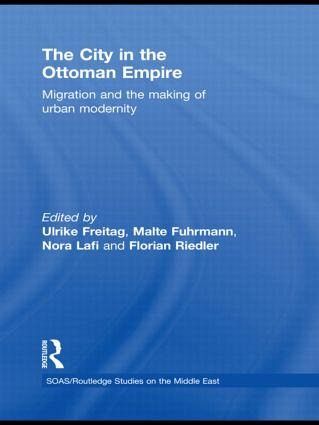
The City in the Ottoman Empire
Migration and the making of urban modernity
Herausgegeben: Freitag, Ulrike; Fuhrmann, Malte; Lafi, Nora; Riedler, Florian

PAYBACK Punkte
80 °P sammeln!
The nexus of urban governance and human migration was a crucial feature in the modernisation of cities in the Ottoman Empire of the nineteenth century. This book connects these two concepts to examine the Ottoman city as a destination of human migration, throwing new light on the question of conviviality and cosmopolitanism from the perspective of the legal, administrative and political frameworks within which these occur.Focusing on groups of migrants with various ethnic, regional and professional backgrounds, the book juxtaposes the trajectories of these people with attempts by local adminis...
The nexus of urban governance and human migration was a crucial feature in the modernisation of cities in the Ottoman Empire of the nineteenth century. This book connects these two concepts to examine the Ottoman city as a destination of human migration, throwing new light on the question of conviviality and cosmopolitanism from the perspective of the legal, administrative and political frameworks within which these occur.
Focusing on groups of migrants with various ethnic, regional and professional backgrounds, the book juxtaposes the trajectories of these people with attempts by local administrations and the government to control their movements and settlements. By combining a perspective from below with one that focuses on government action, the authors offer broad insights into the phenomenon of migration and city life as a whole. Chapters explore how increased migration driven by new means of transport, military expulsion and economic factors were countered by the state's attempts to control population movements, as well as the strong internal reforms in the Ottoman world.
Providing a rare comparative perspective on an area often fragmented by area studies boundaries, this book will be of great interest to students of History, Middle Eastern Studies, Balkan Studies, Urban Studies and Migration Studies.
Focusing on groups of migrants with various ethnic, regional and professional backgrounds, the book juxtaposes the trajectories of these people with attempts by local administrations and the government to control their movements and settlements. By combining a perspective from below with one that focuses on government action, the authors offer broad insights into the phenomenon of migration and city life as a whole. Chapters explore how increased migration driven by new means of transport, military expulsion and economic factors were countered by the state's attempts to control population movements, as well as the strong internal reforms in the Ottoman world.
Providing a rare comparative perspective on an area often fragmented by area studies boundaries, this book will be of great interest to students of History, Middle Eastern Studies, Balkan Studies, Urban Studies and Migration Studies.





